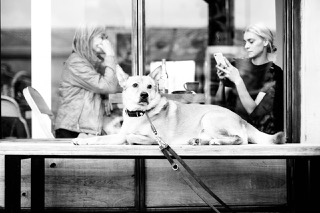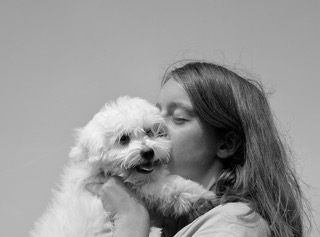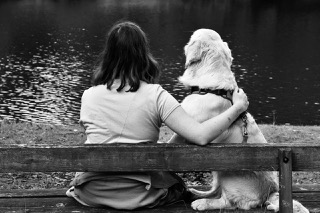At COTA Veterinary, our American Veterinary Chiropractic Association certified Veterinarian, Dr. Alyssa Fenton, offers chiropractic adjustments for our dog and kitty patients!
But what does Chiropractic care mean? What does an Animal Chiropractor do?
Animal Chiropractors use very gentle, manual (by hand), short lever, high velocity, controlled manipulations of joints, called “adjustments”, to restore joint function and support the nervous system. These adjustments allow the body to attempt to achieve it’s maximum potential. In many cases, this provides relief to the pet without the need for drug therapy. These gentle adjustments work to restore normal motion to the joints of your animal’s body.
Over the last 100 years, scientific studies (yes, they exist!) have shown that a misalignment of joints, especially the vertebrae of the spinal column (called a “subluxation” in chiropractic terminology), adversely alters nerve function from and around that joint.
Let’s describe it in a less technical way!
Picture a babbling brook in a forest in your mind’s eye. Now picture what happens when a beaver comes along and builds a dam across that brook. Water pools above that dam, and an altered, smaller amount of water travels under/through/around the dam and continues on it’s previous path. The brook is still supplying some water to the trees, grass, flowers, animals, etc surrounding it, but in a decreased capacity.
In this way, a subluxation of the joints of the body causes decreased or altered nerve function past the “dam” of the subluxation. These altered or decreased nerve impulses leaving the spinal column then affect the function of organs and tissues supplied by that nerve. This altered function can lead to pain, disease, fatigue, muscle weakness, poor balance, immune suppression, and other long term negative processes.

Now back to our forest!
What happens if the beavers move out and the dam is destroyed or removed? The previous flow of the brook is restored, and full support of the water it contains returns to the trees, grass, flowers, and animals it supplies. Similarly, the animal chiropractor uses manual manipulation of the joints, especially of the spinal column, to remove the “dam” like subluxations and allow normal nerve impulses to travel to every organ, every bone, every muscle in the body. Mammal’s bodies are powerful healers in their own right, and the restoration of nerve function by the animal chiropractor helps release the inherent recuperative powers of the animal’s body, a concept we call the “innate”.
What is American Veterinary Chiropractic Association Certification(cAVCA)? Are all animal chiropractors AVCA Certified?
The short answer is NO, not all Animal Chiropractors are AVCA certified. ALL animal chiropractors have either a four year DVM (Doctorate of Veterinary Medicine) or a four year DC (Doctor of Chiropractic) degree. There are several schools in the country that provide the advanced education needed to then become an animal chiropractor. Not all programs, however, ready the Doctor for the primary North American Animal Chiropractic credential, AVCA certification. AVCA Certification identifies those professionals who have met specific standards of knowledge and experience in the animal chiropractic field. This certification is meticulous, and was developed based on input and oversight from both veterinary and chiropractic professionals. Certificants have successfully completed an AVCA approved post-graduate program, with a minimum of 210 hours of post-graduate work. They have also passed the Animal Chiropractic Certification Commission’s rigorous certification examination. Certification is issued for three years, and certificants must maintain certification through approved continuing education. The AVCA Certification program establishes and promotes professional accountability, visibility, and continued professional growth and development. We are very proud to say that Dr Fenton is AVCA certified!
A word of caution: human and animal chiropractic adjustments are NOT the same thing. Just as an animal chiropractor would never offer to adjust a human (unless, of course, they are a certified human chiropractor (DC) with advanced animal training), an untrained human chiropractor should not adjust quadripeds such as dogs, cats or horses. The anatomy and angles of the joints are quite different, and if a professional is not properly trained, your pet could be at greater risk of injury. If you are reading this blog post from out of the Richmond area, please use this link to find a certified animal chiropractor in your area: https://www.animalchiropractic.org/find-a-doctor/. If you are in the area, we hope you will come and meet us at COTA!

How do I know if my pet needs an adjustment?
This is by far the most common question we hear in the practice setting. Although most people are familiar with human chiropractic care, many people don’t know that animal chiropractors even exist! Chiropractic treatment of large animals dates back to the early 1900s, and by the late 1980s programs emerged to certify both Veterinarians and Chiropractors in the specific training of animal chiropractic manipulation.
How do you know if your pet needs an adjustment?
The answer is, across the board, YES, they do!
Birth, the very first thing an animal experiences, is one of the most traumatic events the body will encounter. I strongly encourage first puppy visits as early as possible, and adjust my own puppies for the first time at 1 to 2 days of age! Breeders that come to the practice are strongly encouraged to have litters adjusted at the time of their first check up, to help puppies reach their maximum potential as they grow.
It’s never too late to bring your pet for an adjustment, but when your pet is in pain or has musculoskeletal disease, it can take a much longer time to achieve relief.
At COTA, we believe strongly in the concept of PREVENTATIVE medicine,. Preventative medicine means proactively performing testing like routine bloodwork panels, in order to identify any disease processes early, while we can still make a significant positive impact. Routine dentistry is also a part of wellness, making sure the teeth and mouth stay healthy, and not waiting for diseased teeth to be present before dental care is performed. In that same preventative vein, taking care of your pet’s spine for their entire life is just as important as taking care of their mouth and organs.

Your pet does not necessarily need a healthy diet, exercise, or a healthy mouth in order to live, but they do need these things in order to live to their optimal potential for health and longevity. Just like diet and exercise, a proactive, wellness centered approach to our animal’s care includes regular chiropractic care, which is usually recommended on a quarterly basis for our young, healthy family pet. Dr Fenton will discuss a best fit protocol for your beloved family member with you at the time of your appointment.
Chiropractic care is also of huge advantage to patients with chronic orthopedic disease, chronic metabolic diseases, older patients, and is essential for the well being of the canine athlete. Please call us at (804) 964-2682 to find out how chiropractic care benefit to your beloved companion!
What will happen after my pet is adjusted?
Some pets appear sleepy and need to rest after their first chiropractic adjustment. This is completely normal, as the body is already beginning to repair itself. It is perfectly normal to see an initial improvement in the animal’s condition, followed by a relapse, as the body has to “relearn” a normal alignment of joints. In general, they will have greater mobility, less pain, be more alert and playful and have an improved gait.
In some cases, the pet is sore the next day, especially if they have never been adjusted before. This discomfort resolves within a day or two of adjustment, and leaves the pet feeling significantly better! Depending on the severity of the injury or problem, Dr Fenton might only adjust certain parts of your pet’s body at the first visit. She will give you a detailed plan prior to adjustment, as well as recommendations for a home protocol including stretching/strengthening exercises if warrented.
In most cases, an easy, short walk the evening following their first adjustment is recommended, to allow the body to adapt to the changes it experiences.
Just as in chiropractic care for humans, it is frequently necessary to schedule additional sessions in order for your dog or cat to reap the maximum benefit from adjustments. Routine adjustment varies from less frequent healthy pet check ups to weekly or biweekly check ups for dogs with specific problems. We offer chiropractic packages to help allay costs for pets that need adjustment frequently. It’s important to remember that each adjustment builds on the next, and if you wait too long to come back for the follow-up appointment, the results will not be as effective.
We hope to see you for your chiropractic consult with Dr Fenton in the near future! Request an appointment now, no membership required, or call us at (804) 964-2682!

